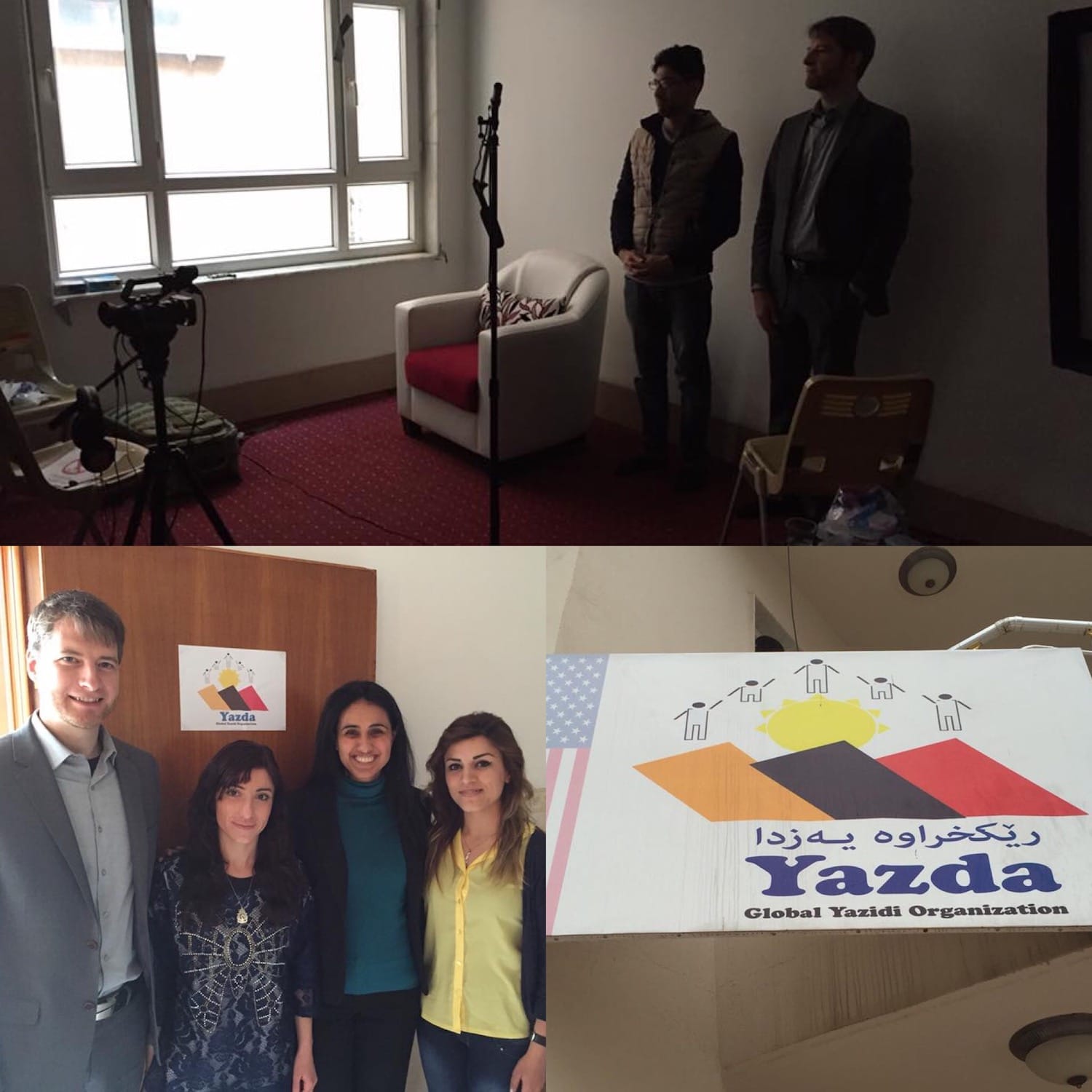IGE’s The Cradle Fund in Dohuk – March 2016
25 March 2016
Getting briefed in Dohuk on the great work of Assyrian Aid…
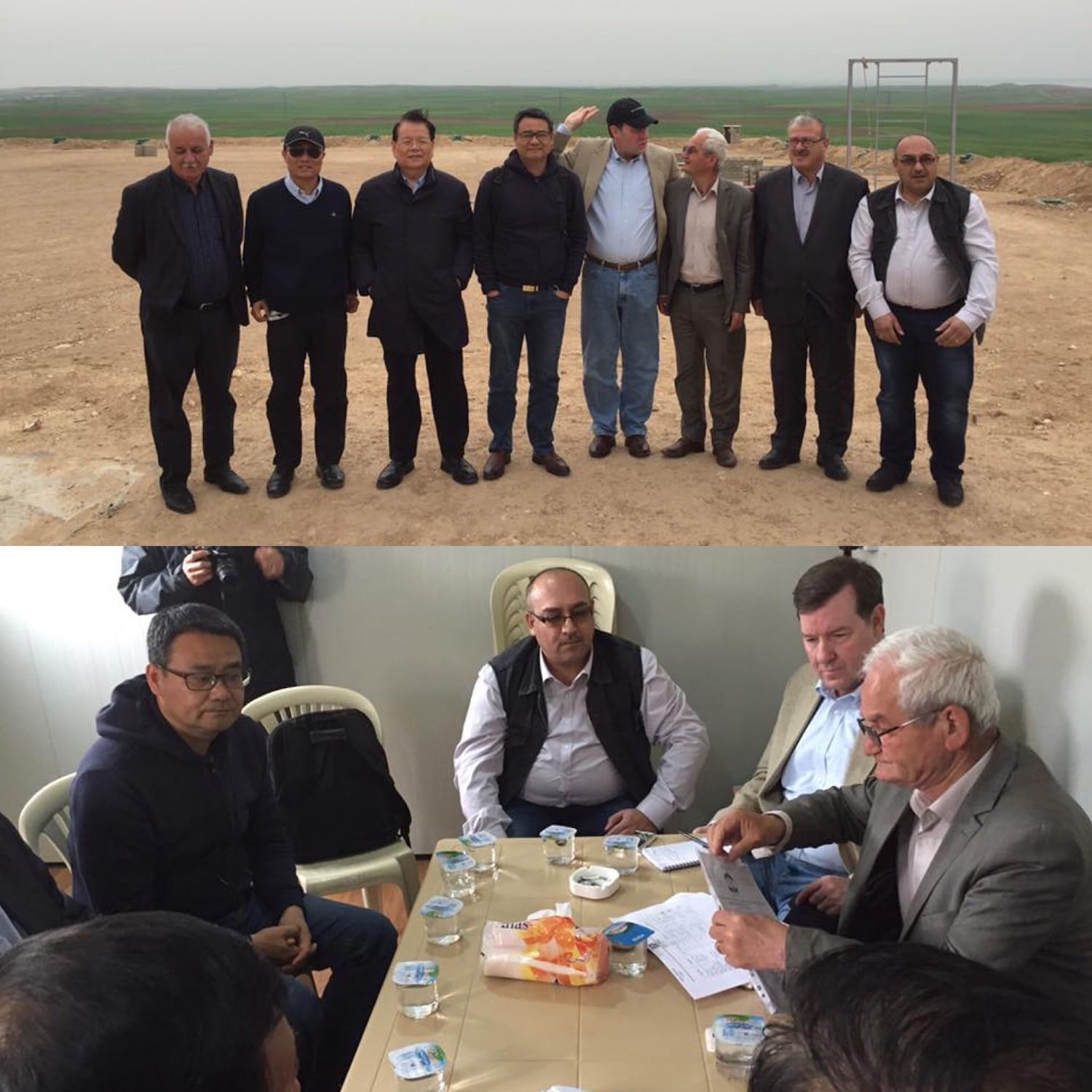
Spent the day in El Qosh, which means in Aramaic, “Strong God.” It is the ancient Patriarchal seat of the Assyrian Church of the East, and just ten miles from ISIS lines (south across the Nineveh Plain behind us). We first met with General Behnam Aboush Abad Almaseeh (next to me in both pictures).His name summarizes the history of Christianity. His first name is famous in Assyrian history for someone who converted to Christianity but was killed by his father for doing so. his last name is “The Messiah” in Arabic. He told us: “We believe we are under the protection of Christ but if we do nothing we will not survive.”
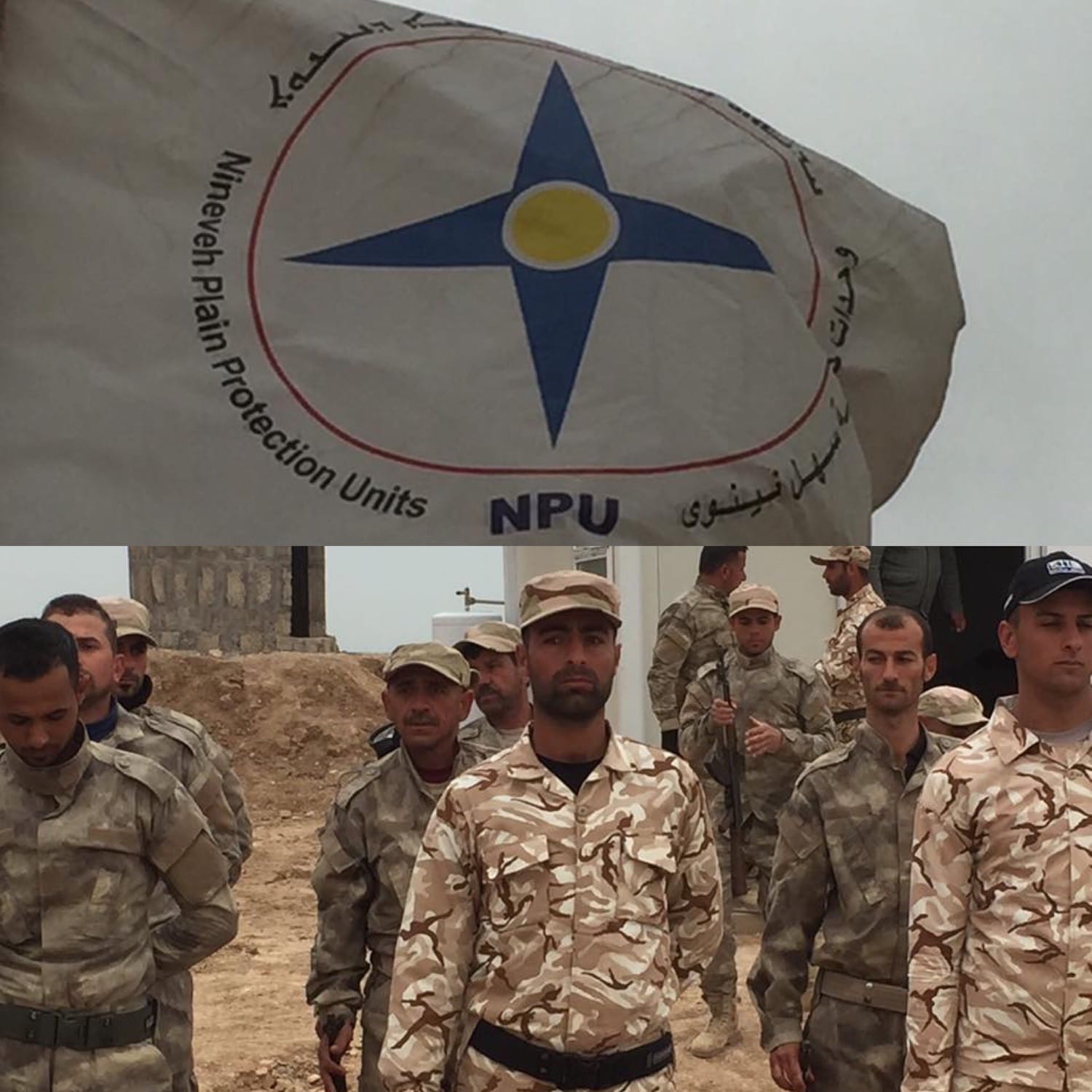
A former Iraqi Army general, he now commands 300 troops all Christian who want to defend their land. “It used to be all Assyrian land but since 90% of our people have left, no one is afraid of us and they push our people out.” The General waited 14 months to get permission from Baghdad to build a training camp on Assyrian land. The government has only given them 100 AK-47s. “We can fight. When ISIS came, everyone fled. But ISIS can be stopped with good, trained troops. But we will need an international force to back us up.” The Christians simply want the protected freedom to live on their historic lands on the Nineveh Plain.

The threat to Christians is more than physical. It is foremost spiritual, emotional and economic. A Turkish company just distributed thousands of shoes for sale with the Assyrian cross on the sole…just before Easter, which is much more important here than Christmas. A terrible insult to see people intentionally selling shoes so that others can literally walk on your faith.
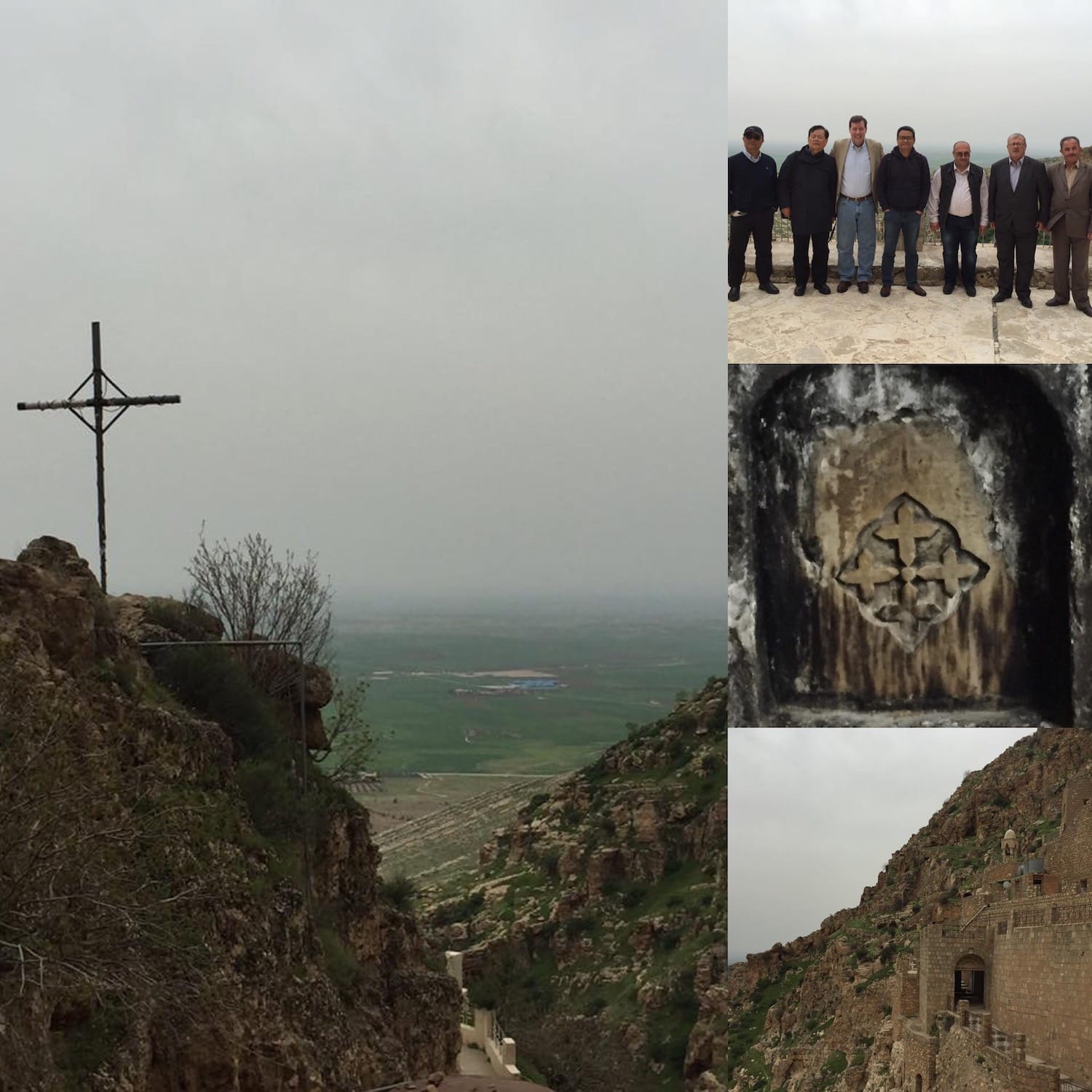
So powerful to return to this 7th century monastery on Good Friday. With the General’s words still fresh in my mind we believe Christ will protect us but if we do nothing we will not survive we come here to this place, looking down on ISIS ten miles away. “The gates of hell have not prevailed against His Church…” But Revelation reminds us that the Church is called to patient endurance (Revelation 13:20). What would I do if I lived here? Flee? Stay and fight? Or would I be willing to die on a cross outside the city (Hebrews 13:12), without fighting? The movie “The Mission” always comes to mind here…
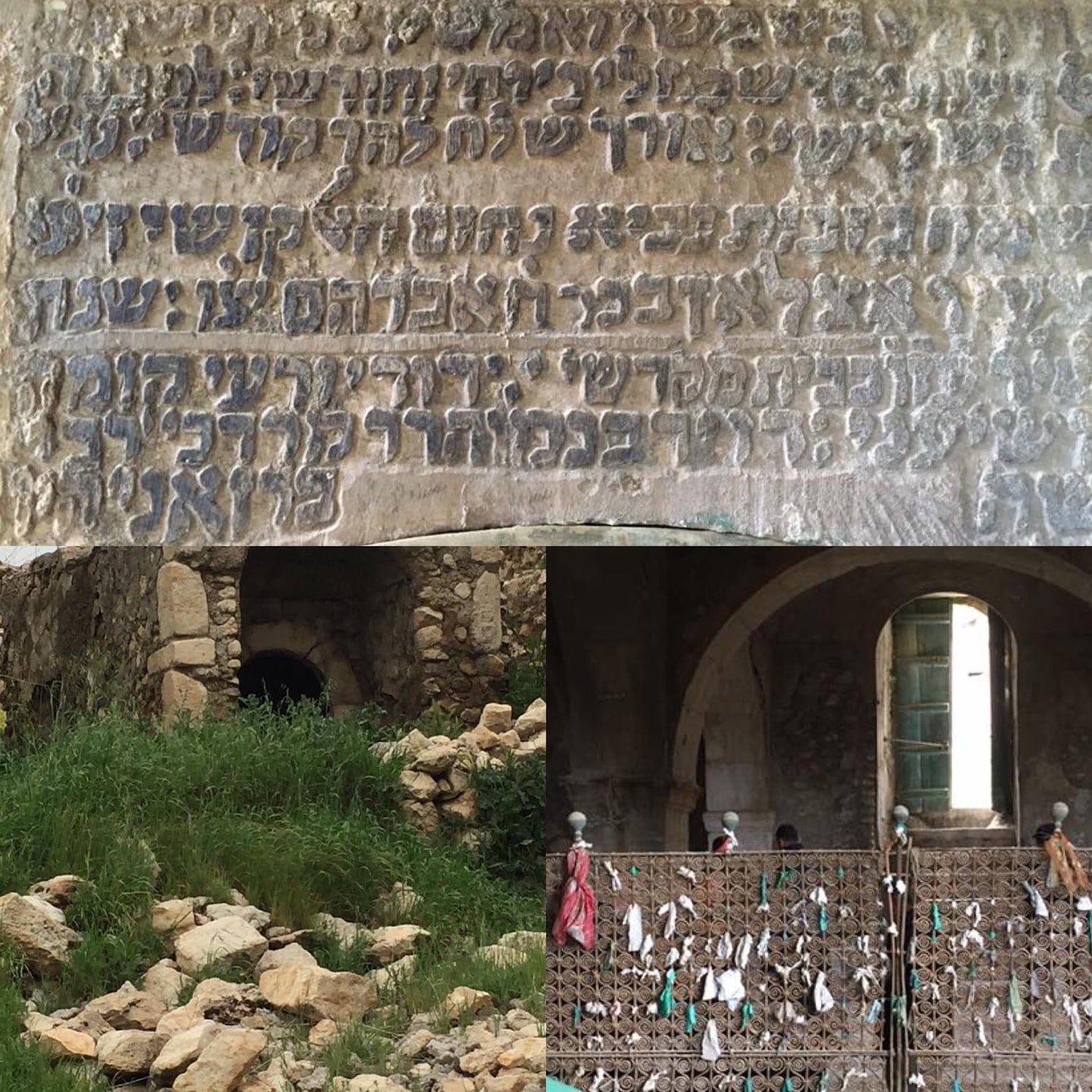
In El Qosh there is an ancient synagogue that dates to the time before Christ. There are no Jews here now but the Synagogue remains under the careful protection of the Church. A powerful testimony. The last picture is the tomb of Sarah, sister to the prophet Nahum.
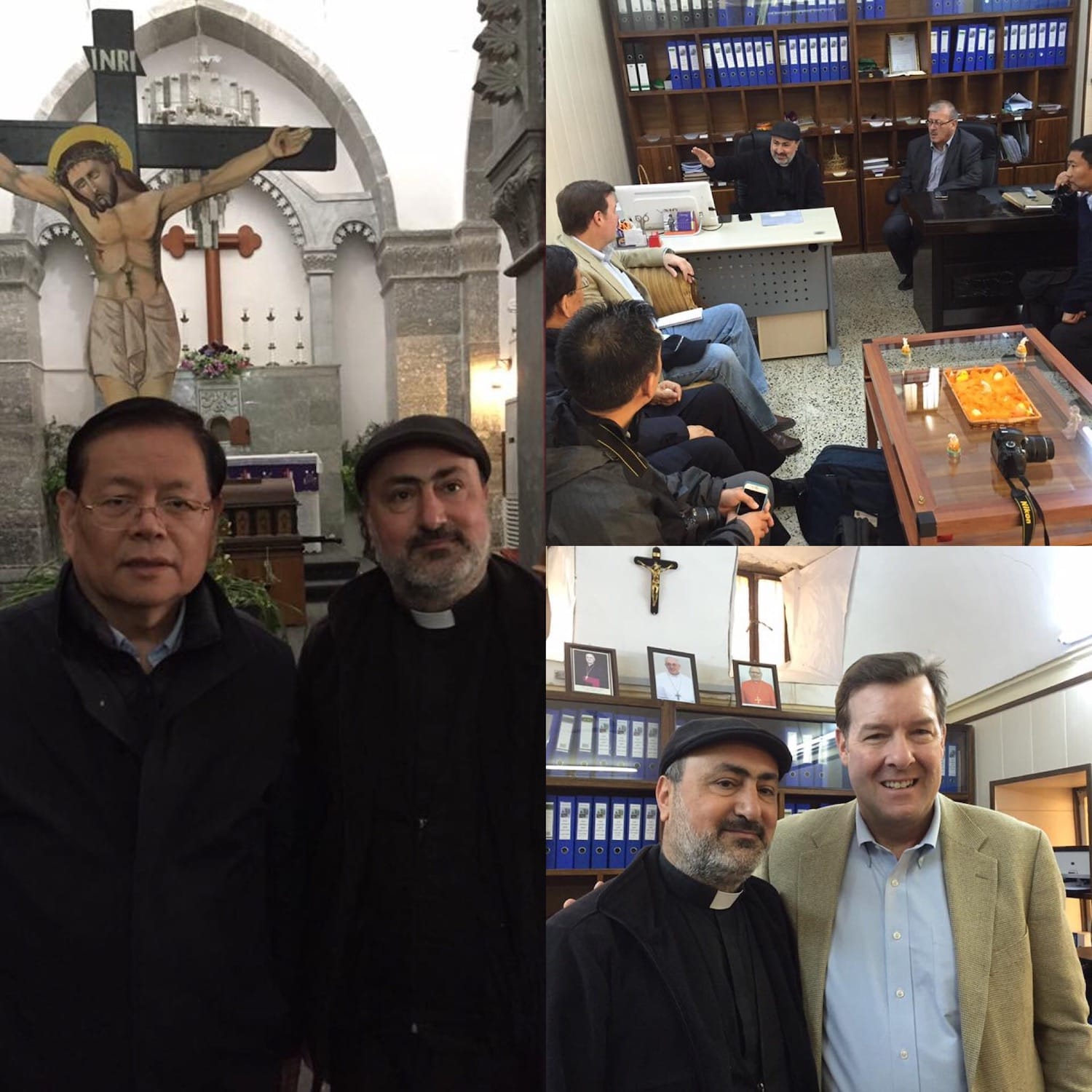
Abuna (Father in Aramaic) Ghazwan is the Chaldean priest in El Qosh. His church was built in 1904 on the same site where a church has stood since the 5th century. He pointed out that El Qosh a town of 1200 families has taken in 600 families (3000 people) that have fled ISIS. Because the 1200 have integrated the 600 into their homes, municipal services are overrun. Families that already lived there don’t get financial support from the international community for taking in refugees, and because Baghdad is unable to pay government salaries, everything from the schools to the trash collection is broken. He asked for support for these 1200 families and to pay local folks who now do the municipal services ($2000/month total for this village on the frontline of ISIS).

We ended the day by meeting with some Protestant pastors from Dohuk and Zakho. They are all trying to serve the refugees through their churches, providing everything from food to mobile health clinics to small trauma workshops. When I asked how we could pray for them, they said two things: 1) Pray that the Christians stay in this land; and, 2) pray for prayer groups to pray. I ask specific prayers for Adil’s (standing to my left) wife, Nabila. She has Ovarian cancer and does not have access to a PETscan. They will have to go to Turkey and it will be expensive. I of course will get a PETScan soon, because I live in a country where it is accessible, and covered by insurance.
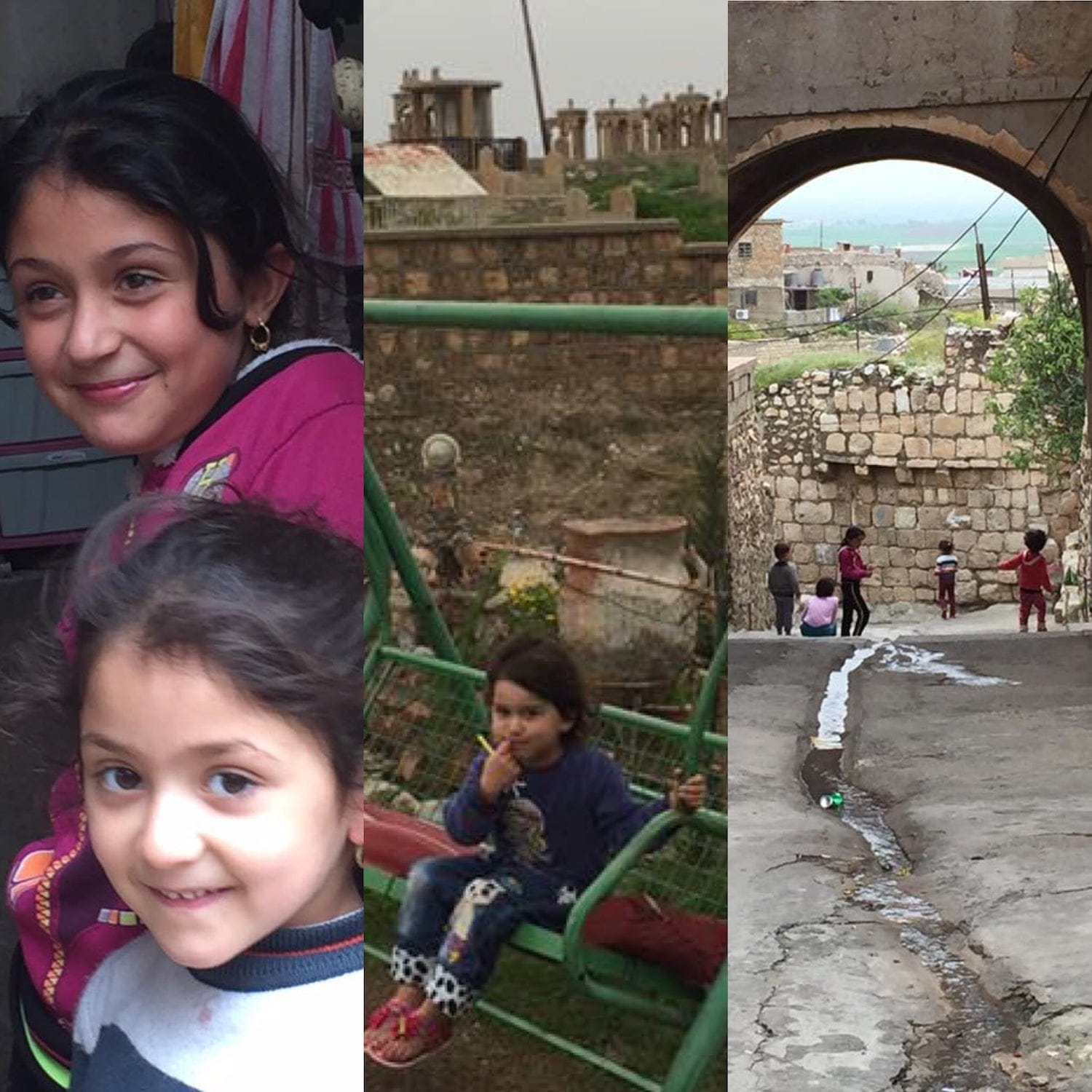
26 March
Started Holy Saturday at Odrana Camp, which IGE’s Cradle Fund and other friends co-sponsored through Assyrian Aid. We met with Raid Yusef Isa and his family. His last name is Jesus and he is Orthodox while his wife, Rafah Abdullani, is Chaldean…and she was wearing a Great Wall of China sweatshirt for our Chinese delegation! They fled Mosul on 10 June 2014 when ISIS came and we asked if they had more or less faith, now, almost two years later: “We believe in Christ. We will follow where He leads.”
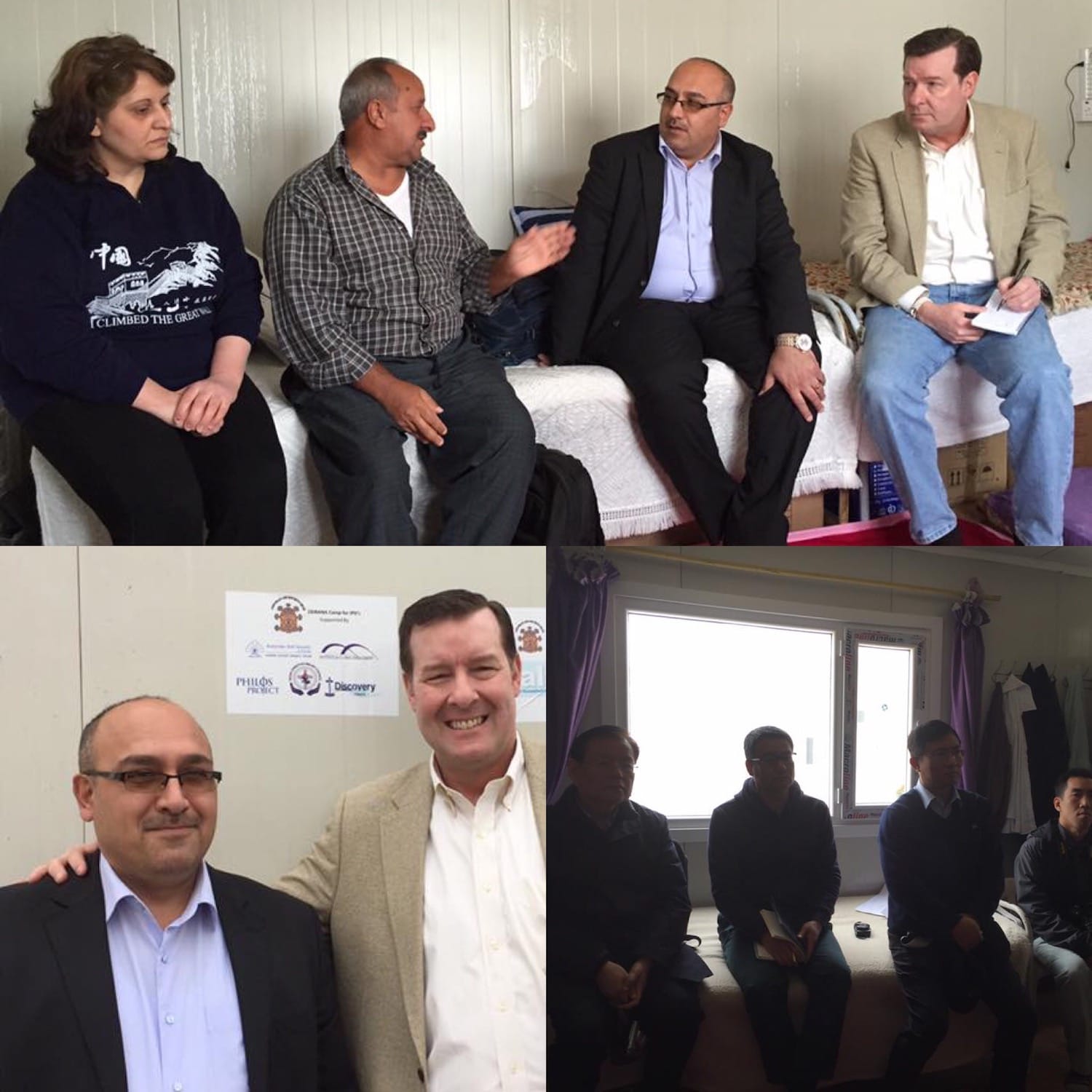
“Simele” means “God’s Name.” Here on August 7, 1933, at least 3000 Assyrian Christians were massacred. It is known as “The Day of the Martyrs.” This day happens to be the same date as when ISIS came to the Nineveh Plain in 2014, forcing all the Christians to flee to Kurdistan. Today this holy ground has no marker but a TV tower. In Greek, martyr means to witness. We will always stand witness to this atrocity against people whose sole crime was to be Christian, even as their faithfulness still witnesses to us on behalf of God’s Name.
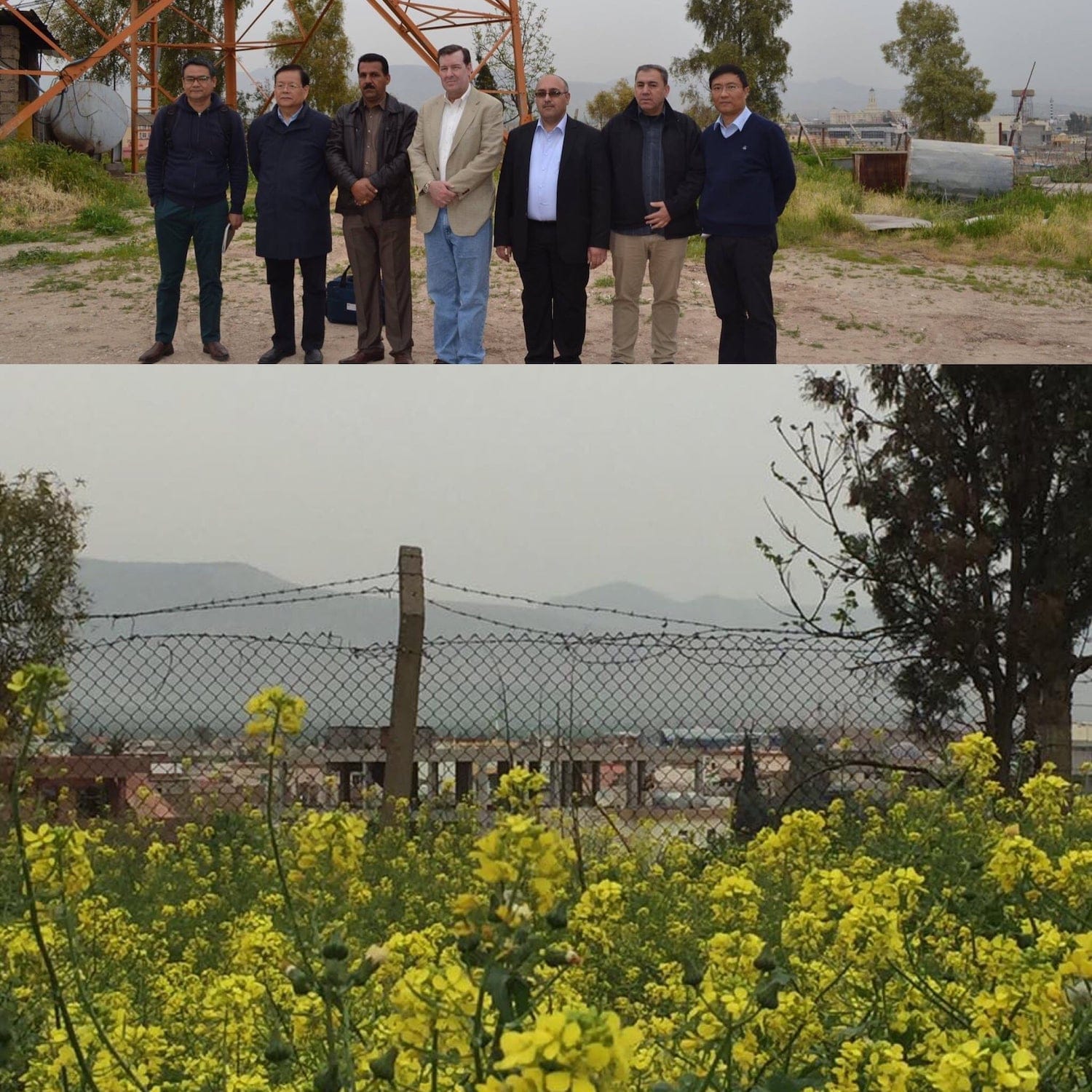
Blessed to visit with our friends at Samaritan’s Purse who run this community center amidst a refugee camp of 20,000 Yazidis. They provide holistic trauma care to these families. In the art room below, children draw out their memories when they are ready. One Yazidi girl drew a picture of one of her friends being beheaded by an ISIS person while another watched, smiling. This is the frontline of evil.
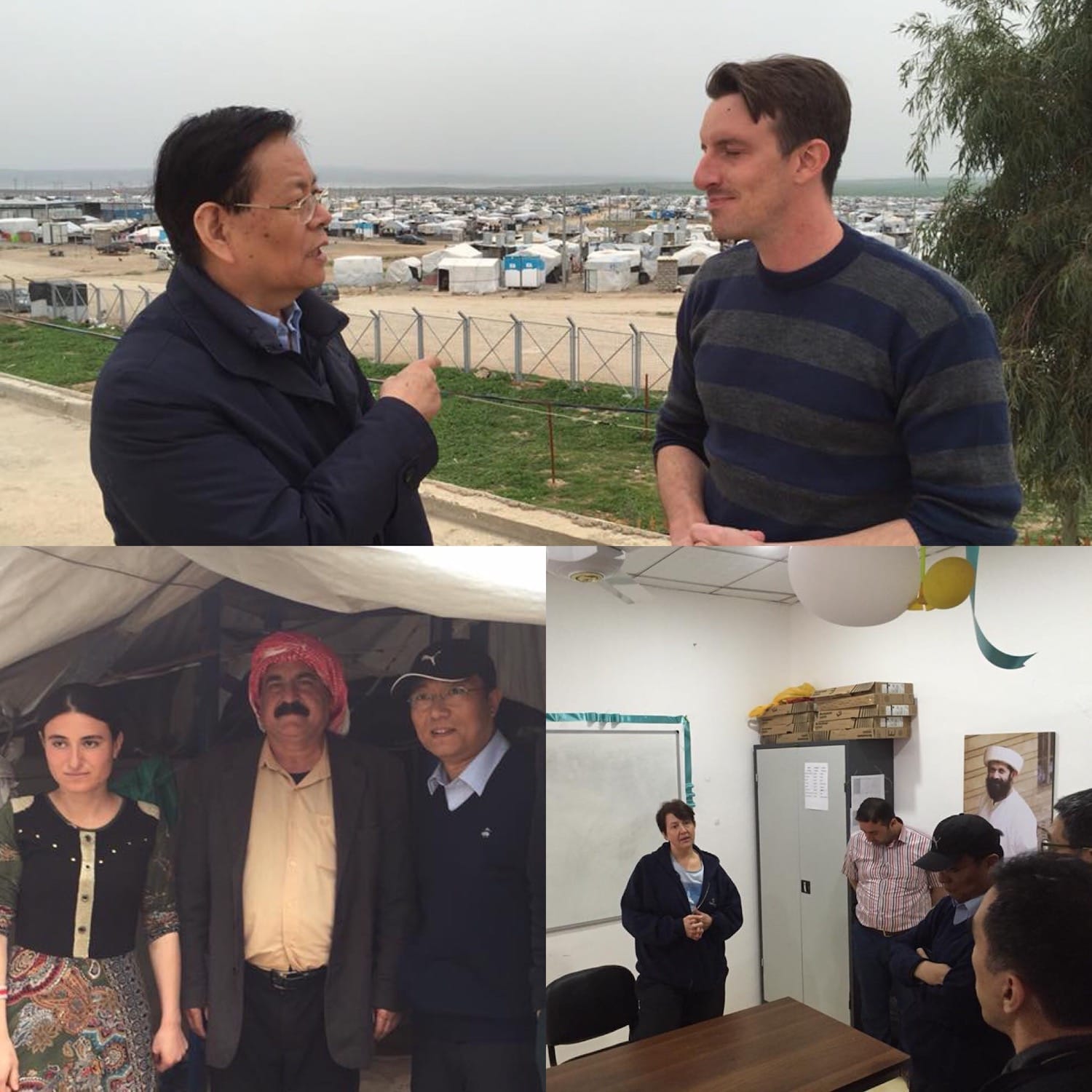
IGE’s Cradle Fund is very proud to partner with Yazda, a Yazidi organization that does genocide documentation, trauma care for women, and invests in the next generation of Yazidi university students. They are in need of mental health specialists. They painstakingly record hours of interviews, naming the past of how life was in order to understand life during and after the genocide. Phenomenal people whose dedication is driven.
